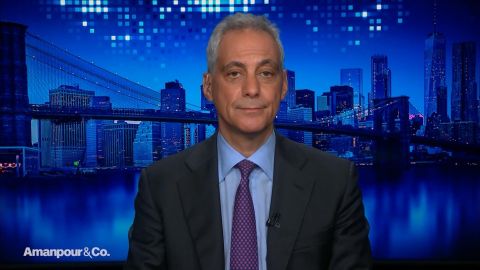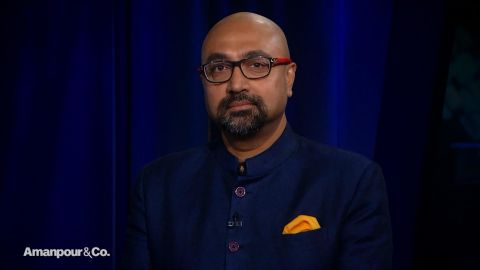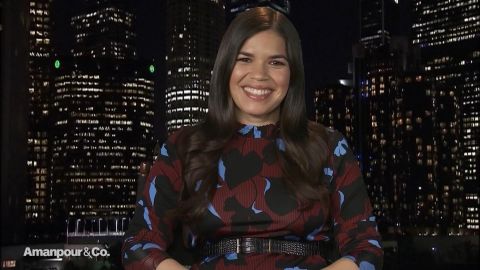Read Transcript EXPAND
CHRISTIANE AMANPOUR: Do you still believe in the process? Do you think it will be successful, this particular process?
RAHM EMANUEL, FORMER CHICAGO MAYOR: No. Look, I believe in the process. And I think the right thing to do is to have a process and have a debate. But I’d want them — and if there was malpractice in our profession, a number of candidates would be sued. Look, in Las Vegas two years ago there was a major mass shooting. There’s only one candidate on that field who voted against an assault weapon ban and has been supported by the NRA. His name is Bernie Sanders. Not one of the other Democrats brought that up. Now, I — that’s not 20 years ago of a mass shooting, that’s a couple years ago. It was one of the worst in American history. The front-runner voted against his assault weapon ban. He’s been endorsed by the NRA. What are you doing not bringing it up? Number two, he’s advocated Medicare for All for everybody. When he had his heart attack, he was in Nevada. Did he use a Medicare card for his health care coverage or as a senator, did he use the plan that only senators and cabinet members and other federal government employees get? You have a responsibility as a candidate to perform, otherwise you don’t get the ticket out. That’s crazy to me.
AMANPOUR: OK. So, let’s go back to mayors.
EMANUEL: I believe in the process, but I want people to show up and do their job as candidates.
AMANPOUR: So, let us talk about mayors again, because one of the people who you admire in terms of what he’s achieved as mayor is Michael Bloomberg, who, yes, he has billions and billions and billions and billions of dollars and that seems to be standing sort of against him, the way the candidates are beating up on him for “buying the election.”
EMANUEL: Yes.
AMANPOUR: But to your point about getting things done that mattered to people, he has a record of doing that. And sort of sharing the wealth around the mayors, right?
EMANUEL: Yes. But here’s what I would say on that. All the other candidates are upset because what I would call the sweat equity of politics. They’ve been in the snows of Iowa for months tilling. Now, it harkens back in 1992 when Bill Clinton was in New Hampshire, he told a crowd way into the wee hours of the night or early morning, I’m going to be here until the last dog dies, that’s a phrase that’s used — a homespun phrase. They knew in New Hampshire he wasn’t giving up on them. As he said then, the hits on me are nothing compared to the hits your kids are going to take if we don’t turn this country around. All the other candidates are upset because Bloomberg is parachuting in and missing all the hard stuff early and just putting his money, it was an attack on his — not his equity but the lack of sweat equity, that he was actually just putting money down without actually doing the retail work of earning people’s vote, and he’s vulnerable to that. He is vulnerable to that attack, because whether you agree with X, Y or Z candidate, they had shown sweat equity and he had shown a reluctance to actually put that type of skin in the game.
About This Episode EXPAND
Former mayor of Chicago Rahm Emanuel discusses the 2020 election and explains why he thinks mayors are running the world. Journalist Bobby Ghosh breaks down the outcomes of President Trump’s official state visit to India. Actress America Ferrera tells Michel Martin about “Gentefied,” the new show she’s executive producing.
LEARN MORE


